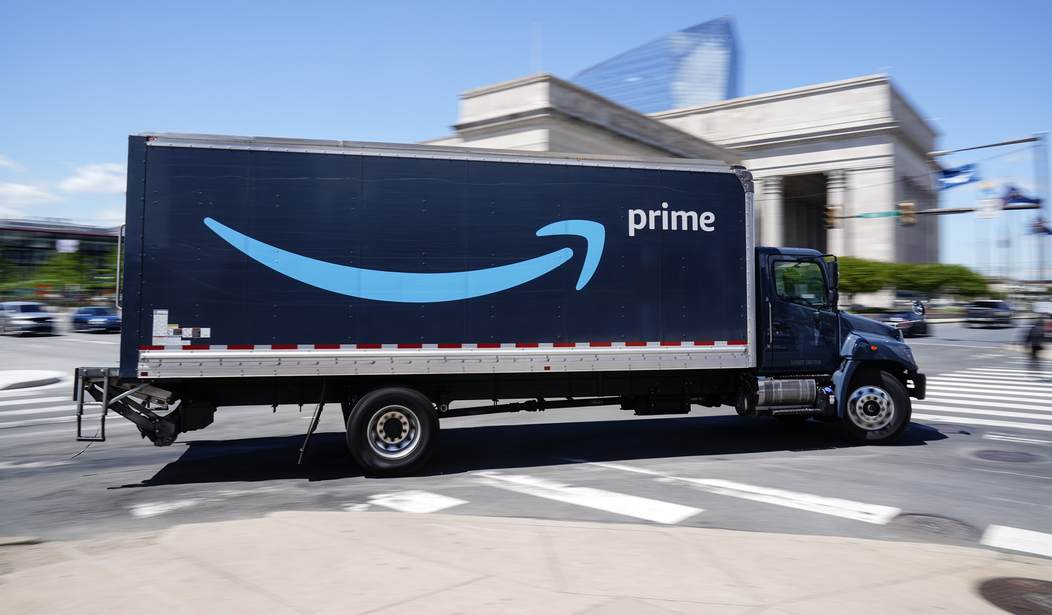Already facing labor shortages, inflationary pressure, and other economic headwinds, employers are bracing for major productivity shortfalls this week as Americans hunt for bargains during Amazon’s famed Prime Day sales event. Many feeling the sting of inflation themselves are undoubtedly excited for the annual event and will log many distracted hours hunting for deals across the retailer’s enormous inventory.
Frequently assailed somewhat lackadaisically by pundits and policymakers alike as a “monopoly,” the reality is that Amazon faces growing challenges from competitors and overall market conditions. This is even before considering the various calls for antitrust intervention and other regulations targeting the e-commerce giant. In light of the current antitrust battle playing out in politics these days, its high time for some Prime Day perspective on the state of Amazon and e-commerce broadly.
While Amazon quickly shot to, and remains at, the top of total e-commerce retail sales, the fact remains that, for several years now, other companies have been growing faster in the segment, oftentimes much faster. From 2017 through 2020, Amazon was overall just the sixth fastest growing retailer in terms of online sales, trailing established brands Home Depot, Costco, Target, Wayfair, and Walmart at the top. Last year was a little kinder to Amazon, but the firm only ranked third in online retail sales growth and still closely followed by major, rival retailers such as Walmart, Costco, Target, as well as the online marketplace Etsy. Earlier in the year, both Etsy and Walmart’s online sales growth were outpacing Amazon’s.
The above figures also just capture US-based companies. Amazon faces some of its most robust competition from Shopify, based in Canada, Japan-based Rakuten, and China’s Alibaba.
While Amazon’s overall growth in the segment did recover somewhat, it comes in the context of other troubling trends for the company. While e-commerce continues to grow as a segment of the total retail sector, that growth is slowing, even compared to pre-pandemic levels. In the first three quarters of 2019, online sales grew at 9.5, 11.1, and 14.4 percent, respectively. Growth obviously exploded to off-the-charts levels during the height of the pandemic, but over the last three quarters, Q3 2021- Q1 2022, growth slowed to 9.4, 9.7, and just 6.7 percent, respectively. Last quarter’s sector growth is the slowest on record since 2009. Meanwhile, total retail sales grew faster in Q1 2022, at nearly 8 percent, indicating that many Americans are eager to get back some of the brick and mortar retail experience.
Recommended
Additional context for the relatively slow growth of the e-commerce sector should only add concern for Amazon. As Digital Commerce 360 reported this past May, part of the albeit-slow growth in sales is “attributable to rising prices that continue to plague shoppers.” While sales increased in terms of dollars, there was a corresponding decline in total orders last quarter.
The one area of online retail that doesn’t seem to be slowing is also a problem for Amazon, which is the number of companies offering rival sales events to Prime Day. Last year, 313 different retailers reportedly offered competing sales events directly targeting Prime Day. This year is no different and the number has undoubtedly grown. In addition, rival retailers are also offering more-aggressive deals than Amazon. For example, Target is offering some of its customers Prime Day price matching plus an additional 5 percent discount. It’s no wonder the business news giant CNBC is suggesting some shoppers “skip” celebrating Prime Day with Amazon altogether.
While there’s no doubt that Amazon continues to be the market leader in terms of e-commerce sales, the e-commerce retail giant probably feels a little less prime this Prime Day. Any company that can put its name so prominently on the calendars of many Americans is undoubtedly going to attract antitrust scrutiny. Yet it’s clear that the company remains under significant pressure and that such calls for antitrust intervention have gone straight from premature to outdated. Amazon cannot afford to ignore growing competition and concerning economic trends just as many Americans battling inflation cannot afford to miss all the incredible deals offered this week by Amazon and hundreds of rival retailers.
Patrick Hedger is the executive director of the Taxpayers Protection Alliance.
























Join the conversation as a VIP Member